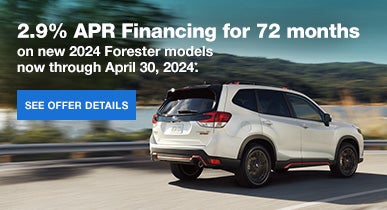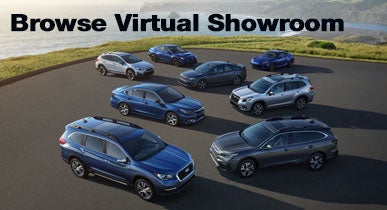Electrify at Burke
Embrace Electric
at Burke Subaru in Cape May Court House, NJ
View the Solterra
Electric vehicles (EVs) are fun to drive, cheaper and easier to maintain than gas-powered vehicles, and contribute fewer emissions into the air. With tax incentives available and a fast-growing network of charging stations, find out if owning an EV is the right
Which EV is Right for Me?
Battery Electric
Fully electric cars offer the smallest environmental footprint and the biggest savings on maintenance and fuel.
Plug-in Hybrid
Plug-in hybrids have a rechargable electric motor and a gas-powered engine to extend range if needed.
Traditional Hybrid
Powered by an electric motor and gas-powered engine, Hybrids recharge as you drive. Tax credits and other benefits
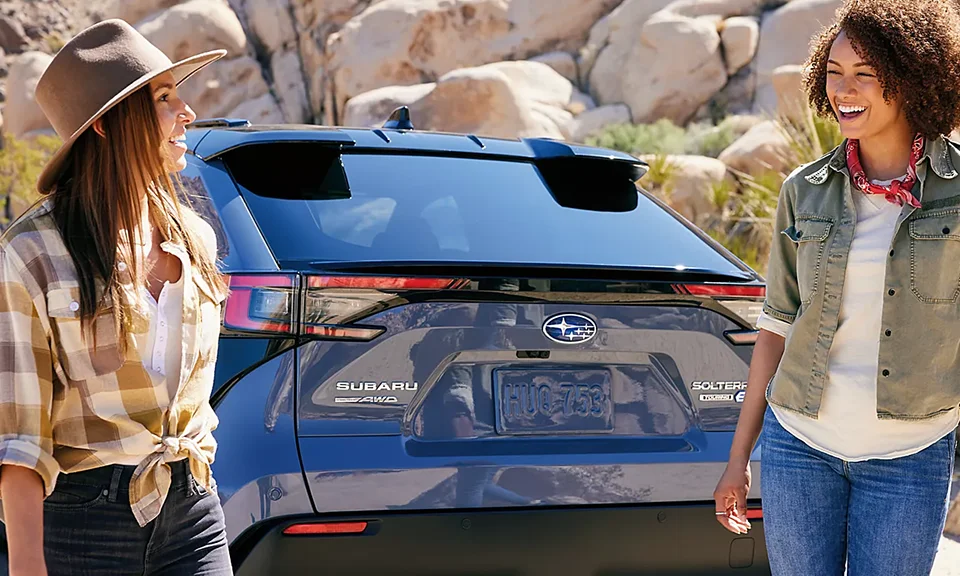
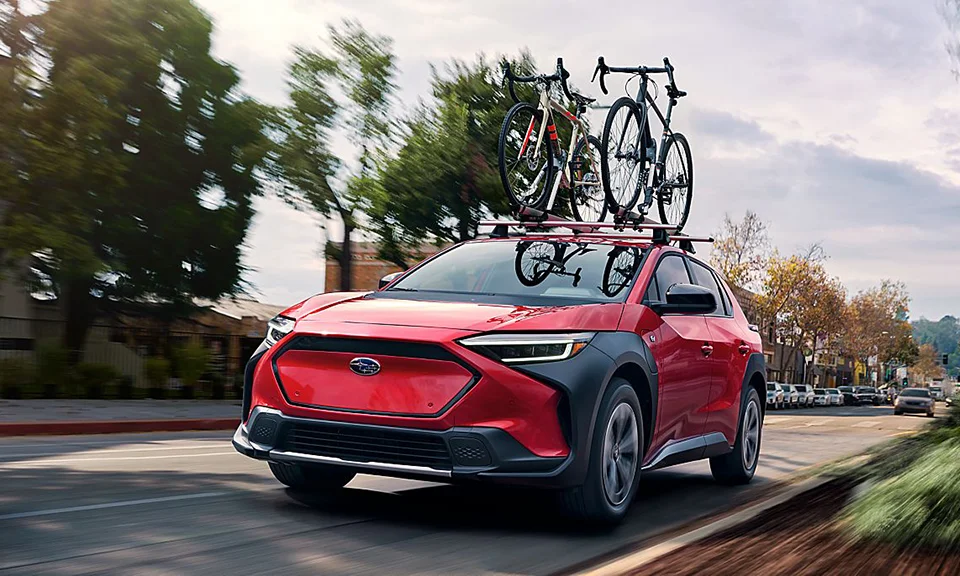
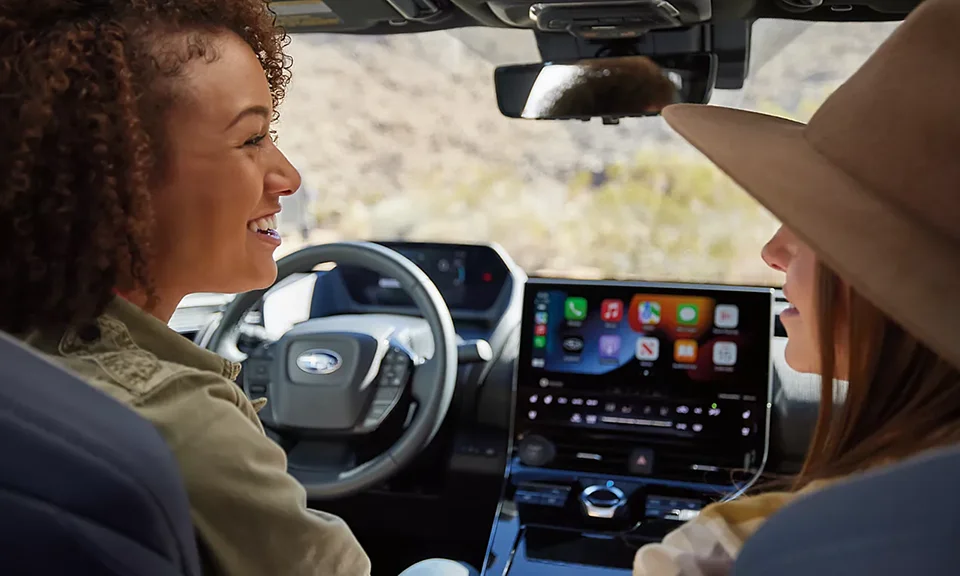
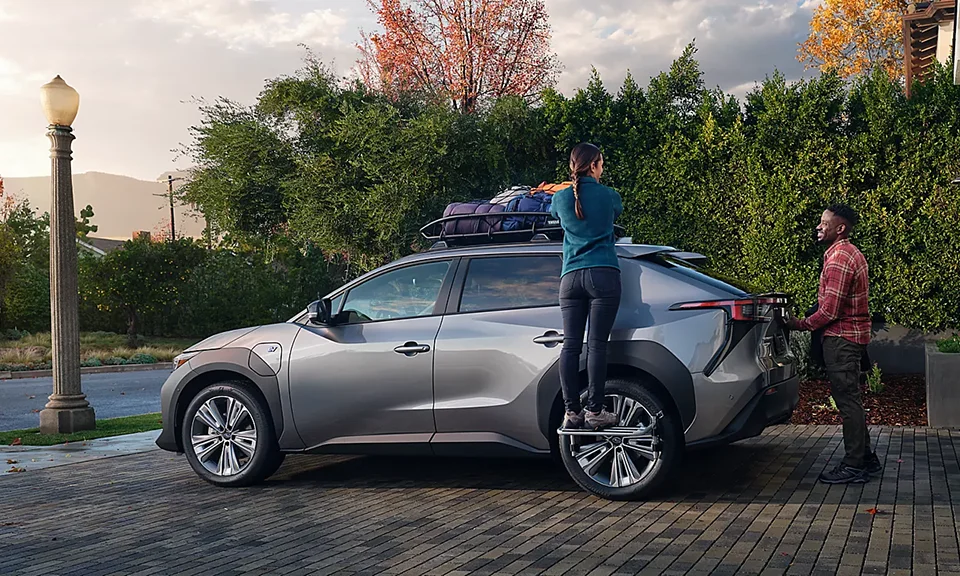
Benefits of Plugging In

Federal Tax Credit
A federal tax credit up to of $7,500 is available on many EV models.

Local Incentives
Installing a home charger may qualify you for state and/or utility company incentives.

Low Cost to Own
EV owners can expect to spend half as much on maintenance and repair. (Consumer Reports)

Fuel Up At Home
Charge while you sleep, work, or at a growing number of public chargers.

Smooth and Quiet
Enjoy fast and smooth acceleration, better handling, and a quieter ride.

Less Maintenance
No more oil changes.
96%
of EV owners surveyed said they'd purchase another EV as their next vehicle.
Understanding Charging
Level 1* chargers use a standard household outlet and charge about 2–5 miles of range per hour, making Level 1 a good choice for plugin hybrid vehicles but not battery
Level 2* chargers can be installed at your home by a professional electrician and charge about 10–20 miles of range per hour. A good choice for any EV when
Level 3 fast chargers are the most efficient and can be found at commercial locations. Level 3 chargers provide about 60–80 miles of range in approximately
*Level 1 and 2 chargers can be used at home. In fact, the standard 120V outlet supports a Level 1 charger. Level 2 chargers require 240V and can be installed by a
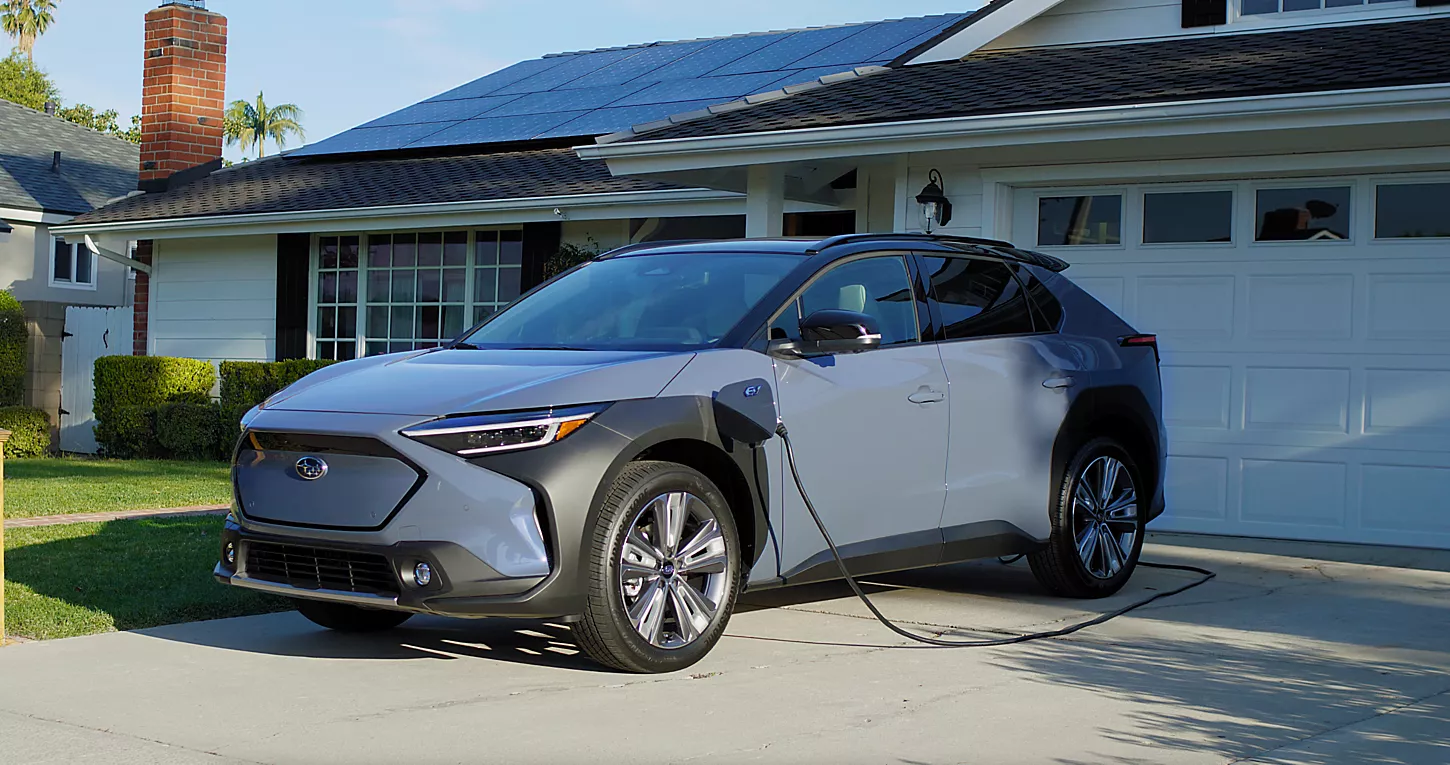
Charging from Home
For plugin hybrid vehicles a standard outlet (Level 1) will be enough for overnight charging. For battery electric vehicles, a Level 2 charger will require professional installation by a licensed electrician. If you live in an apartment or condo, consider talking with the property owner about installing a charger or use a nearby public charger. Talk to our sales staff to find out more about charging
Charging a vehicle at home, no matter the level will raise your electric bill. Home chargers are optional, but extremely convenient. Additionally, electricity prices fluctuate, so it is hard to calculate a fixed amount of savings per year on EV vs gas. At the current electricity price, a Tesla full charge is about $15.50
Subaru has partnered with EVGo to offer charging discounts and deals with the purchase
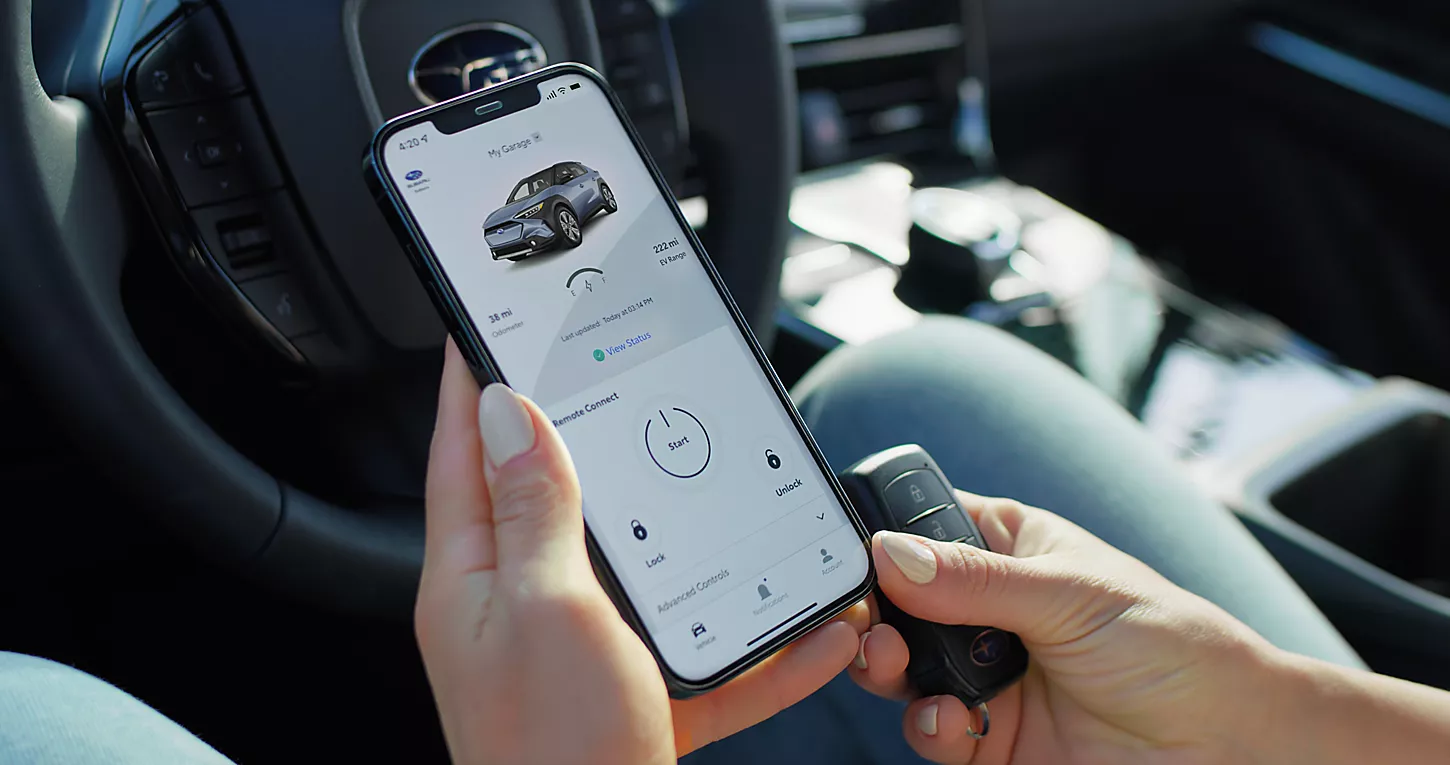
Battery Care
Most batteries will last between 100,000 and 200,000 miles when properly cared for. With battery technology continually advancing, that number will continue to increase. If you can keep your battery between 20% and 80% charged most days and avoid extremely hot temperatures, you can expect your maintenance
According to a study done by AAA, at 20 degrees, the average driving range dropped by 12% although makes or models were
Charging Stations Near Burke Subaru
Common EV Questions
A federal tax credit of $7,500 is available on most EV models. Depending on where you live, state and local rebates and incentives may also be available. Check with your sales associate to find out if the model is eligible for rebates and incentives.
Other advantages of owning an EV include:
- Eligible EVs may also qualify for HOV lane access, which are normally restricted to vehicles with multiple passengers.
- Many electric companies offer lower rates based on the time of use. With EVs, you can save money by charging during off-peak times.
- If you're able to charge from work or home, there's usually no need to stop to refuel like you would in a gas-powered vehicle.
- EVs produce zero tail-pipe emissions resulting in cleaner air and better health.
This will vary depending on the local price of electricity and gas and where you are charging (at home or public charger), but most EV owners can expect to save on fuel cost. A recent Consumer Reports study found the “typical EV owner who does most of their fueling at home can expect to save an average of $800 to $1,000 a year on fueling costs over an equivalent gasoline-powered car.”
Source: Benjamin Preston. October 08, 2020. EVs Offer Big Savings Over Traditional Gas-Powered Cars.
https://www.consumerreports.org/hybrids-evs/evs-offer-big-savings-over-traditional-gas-powered-cars/
A recent Consumer Reports study found “maintenance and repair costs for EVs are significantly lower over the life of the vehicle – about half – than for gasoline-powered vehicles, which require regular fluid changes and are more mechanically complex. The average dollar savings over the lifetime of the vehicle is about $4,600.”
Source: Benjamin Preston. October 08, 2020. EVs Offer Big Savings Over Traditional Gas-Powered Cars.
https://www.consumerreports.org/hybrids-evs/evs-offer-big-savings-over-traditional-gas-powered-cars/
Gas powered vehicles offer a range of 300-400mi. Battery electric vehicles offer a median range of 250mi. For EV owners who charge at home, this is more than enough for daily use. For longer drives beyond the range of your vehicle, check a public charger map for charger availability along your route.
- Level 1 chargers use a standard household outlet and charge about 2-5 miles of range per hour, making Level 1 a good choice for plugin hybrid vehicles but not battery electric vehicles.
- Level 2 chargers can be installed at your home by a professional electrician and charge about 10-20 miles of range per hour. A good choice for any EV when charging overnight or all-day is possible.
- Level 3 fast chargers are the most efficient and can be found at commercial locations. Level 3 can charge about 60-80 miles of range in about 20 minutes, making it a good choice for any EV when a quick charge is needed on the go.
Yes, Level 1 and Level 2 chargers can be used at home. In fact, the standard 120V outlet supports a Level 1 charger. Level 2 chargers require 240V and can be installed by a licensed electrician. If you do not own your home, you may need to work with your property owner to install a Level 2 charger.
Most batteries will last between 100,000 and 200,000 miles when properly cared for. With battery technology continually advancing, that number should continue to increase.







